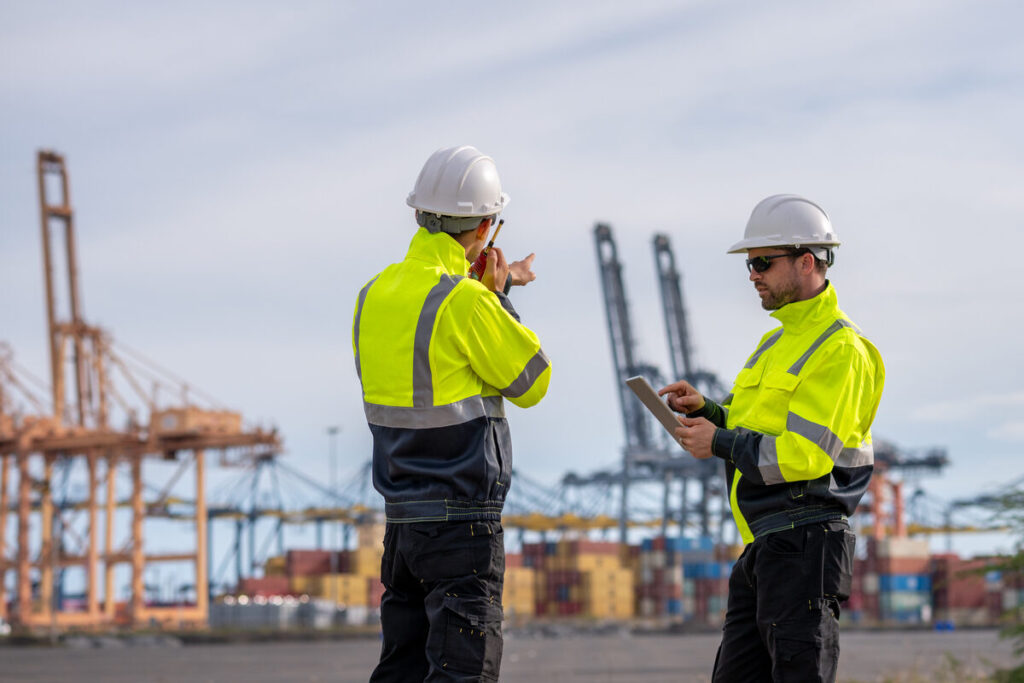In the dynamic ecosystem of international maritime transport, auxiliary naval services play a crucial yet often overlooked role. These complementary operations —such as towing, mooring, stevedoring, ship supply, technical inspections, or pilotage services— are essential to ensure the proper functioning, safety, and efficiency of port and maritime operations.
Far from being marginal activities, auxiliary services represent a key added value in the maritime logistics chain. Their quality and coordination directly influence vessel punctuality, maneuvering safety, and the overall competitiveness of ports.
The strategic importance of auxiliary services in ports
Every port call requires a precise choreography of specialized services. From the moment a vessel enters port jurisdiction waters, a set of operations is activated to ensure its safe entry, berthing, loading or unloading, and subsequent departure.
The pilotage service, for example, ensures that a professional with specific knowledge of the port advises the captain during the entry maneuver. Harbor towing, on the other hand, provides the necessary assistance for large vessels to maneuver safely in confined spaces. Services such as mooring and unmooring, though seemingly simple, are fundamental to guarantee the vessel’s stability while docked.
These services not only facilitate daily operations but also have a direct impact on port productivity. A port with well-organized auxiliary services equipped with modern technical resources can reduce turnaround times, avoid delays, and provide a more competitive service to shipping companies.
Technical support, supplies, and afloat maintenance
Beyond port maneuvers, auxiliary technical services play a key role in vessel operations. Specialized companies supplying fuel, lubricants, spare parts, food, or fresh water ensure that vessels remain in optimal condition during their voyage.
Similarly, tasks such as afloat maintenance, technical inspections, hull cleaning, or MARPOL waste removal form part of the support ecosystem surrounding each vessel. Proper planning allows many of these tasks to be carried out during the port call without interfering with other operations, improving efficiency and reducing costs for shipowners.
The digital integration of these services through port platforms facilitates coordination, traceability, and compliance with environmental and safety regulations, aspects that are increasingly relevant under international standards.
Contribution to maritime safety and sustainability
The safety of maritime operations is closely linked to the quality and preparedness of auxiliary services. Poor mooring, inadequate towing, or delays in critical supplies can compromise both the integrity of the vessel and the safety of the crew and the port.
At the same time, the evolution of these services aligns with the maritime sector’s sustainability goals. For instance, bunkering with alternative fuels, proper waste and wastewater management, or the use of service vessels powered by clean energy actively contribute to the reduction of the environmental footprint of port operations.
When delivered under quality and environmental responsibility standards, these services provide ports with a differential value and strengthen their image as logistics hubs committed to the energy transition.
A strategic link for integrated maritime logistics
As maritime transport moves toward more digitalized, sustainable, and efficient models, auxiliary naval services are taking on an increasingly strategic role. They not only improve port productivity indicators but also facilitate the integration of all logistics links involved in a loading or unloading operation.
The ability to provide high-quality, coordinated, safe, and environmentally responsible auxiliary services becomes a decisive factor in attracting regular calls, consolidating strategic traffic, and offering high value-added solutions to increasingly demanding clients. SUARDIAZ Group, with a solid track record in maritime transport and integrated logistics operations, recognizes the critical importance of auxiliary naval services as part of the logistics ecosystem.























